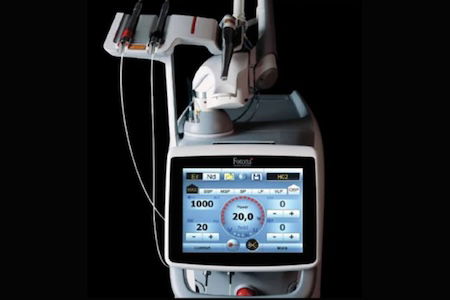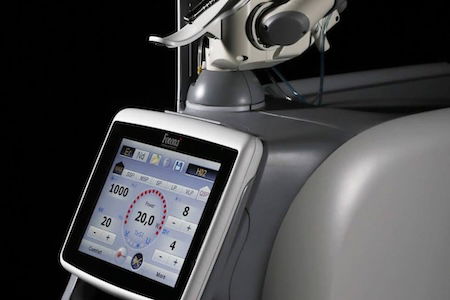Root Canals and Laser Root Canals
Root canals are a common procedure used to treat teeth that are damaged or have deep decay. Modern root canals use the latest dental technology to make this process as comfortable and efficient as possible.
One of the most advanced methods used is laser root canal treatment. This modern approach allows the dentist to preserve healthier tooth structures while thoroughly cleaning the root canal system. Laser treatment can reduce discomfort and promote faster healing than traditional root canal therapy.
Do you have tooth pain? Does it feel like it is deep within your tooth? You could need a root canal endodontic treatment.
Root canals are a common procedure used to treat teeth that are damaged or have deep decay. Modern root canals use the latest dental technology to make this process as comfortable and efficient as possible.
One of the most advanced methods used is laser root canal treatment. This modern approach allows the dentist to preserve healthier tooth structures while thoroughly cleaning the root canal system. Laser treatment can reduce discomfort and promote faster healing than traditional root canal therapy.
Do you have tooth pain? Does it feel like it is deep within your tooth? You could need a root canal endodontic treatment.


Laser Technology Is the Best New Root Canal Procedure
The groundbreaking new laser technology has dramatically transformed the success rates of root canal procedures. This advanced, cutting-edge method significantly boosts the precision and effectiveness of thoroughly cleaning the root canal system, thereby offering a new glimmer of hope for teeth affected by deep decay or requiring multiple dental procedures.
Unlike traditional root canal treatments, which often involve extensive removal of tooth structure, laser root canals are designed with the utmost care to minimize the removal of tooth tissue, aiming to preserve as much of the healthy tooth structure as possible.
The introduction of laser technology in root canal procedures allow to provide higher standard of care for patients.
Some of the Advantages of Laser Root Canals
Less Painful Procedures:
Dental laser root canals significantly advance dental care, offering a much less painful alternative to traditional root canal methods. A dentist or endodontist uses this innovative approach to minimize discomfort during the procedure and increase the success of saving teeth with less likelihood of needing a dental crown. It also reduces recovery time and post-procedure pain. This makes dental care less daunting and more accessible for patients who might fear conventional methods.
Effective Sterilization:
Utilizing advanced laser technology, dental treatments can achieve a more effective level of sterilization by directly targeting and eliminating bacteria within your soft tissue and tooth pulp. This approach significantly reduces the risk of post-treatment complications and promotes a healthier recovery process, ensuring that patients receive the safest and most effective care possible.
Preservation of Tooth Strength:
The advanced precision of laser root canal treatments ensures that a greater amount of your tooth’s structure is retained during the procedure. This method is less invasive than traditional techniques, conserving the tooth’s integrity and promoting its strength and longevity. By preserving more of the natural tooth structure, the overall health and functionality of the tooth are significantly enhanced.
Decreased Risk of Reinfection:
Using a dental laser in treatments significantly reduces the risk of patients experiencing reinfection. This advanced technology improves the immediate results of dental procedures and ensures more successful long-term outcomes by minimizing the chances of complications associated with reinfections.
Comfortable Patient Experience:
Laser root canal treatments significantly improve patient comfort. Unlike traditional methods, laser treatments are much quieter, eliminating the intimidating sounds that often increase a patient’s anxiety. This advanced approach also tends to be less invasive, needing less local anesthesia, adding more comfort, and minimizing stress during the procedure.
Reduced Bleeding and Inflammation:
Patients undergoing the procedure report significantly less bleeding and inflammation during the treatment and the following healing period. This reduction in breaking blood vessels and inflammation contributes to faster and more comfortable recovery times, allowing patients to return to their daily activities sooner than expected.
Are Root Canals Painful? Do Root Canals Hurt?
The concept that root canals are painful is a common misconception. The reality is significantly different with incorporating new laser technology.
The precision and efficiency of laser root canals minimize discomfort during your procedure and greatly reduce post-treatment pain and recovery time. This advanced approach ensures that patient experience minimal discomfort and distress, challenging the traditional view of root canal therapy as a painful process.
The laser technology is beneficial in promoting faster and smoother recovery. It addresses the infection at its source and preserves teeth.
Laser Root Canal Treatment: A Patient’s Perspective
Undergoing a laser root canal treatment transcends the conventional dental experience. The actual procedure is characterized by its efficiency and minimal discomfort.
Patients experience amazement at the speed of this endodontist procedure and the absence of pain commonly associated with traditional root canals. It provides a swift recovery process , which helps patient to return to their routine life after the treatment.
Experiencing Symptoms of a Toothache or Dental Abscess?
Let us know right away if you are experiencing any of the following symptoms:
- Severe pain when eating or applying pressure to your tooth.
- Swelling or small pimple-like sores around your tooth.
- Throbbing inside your tooth.
- A sudden darkening or discoloration.
- Extreme tooth sensitivity to hot or cold.
An infected tooth can make eating, sleeping, and even working difficult for anyone.

How Much Is a Root Canal? How Much Does a Root Canal Cost?
It is challenging to determine the exact cost of a root canal procedure without evaluating the specific nuances your oral health. Most of the dentists estimate the cost at the start of treatment.
Generally, the cost of a root canal can vary significantly, influenced by factors such as the severity of the infection, the specific tooth affected, and the overall treatment complexity. It’s important to note that these prices are rough estimates and can vary based on individual cases and additional procedures that might be necessary, such as crown placement after your root canal.
The cost is also affected by the type of tooth such as front teeth and molar teeth have different prices.Most dental clinic accepts various insurance plans and offer various financing options.
During the visit dentists mostly discuss specific cost with insurance coverage, out-of-pocket costs, and payment options to make informed decisions about patient’s dental health needs.
How Long Do Root Canals Take?
The duration of a root canal procedure can vary depending on several factors, including the severity of patient’s infection, the tooth affected, and whether any complications are present.
Typically, the process takes 30 minutes to 2 hours in a single visit. However, more complex cases may require a second appointment to ensure the treatment is thorough and successful. Laser technology enhances the precision of the treatment. It significantly reduces the amount of time our patients spend in the chair, making it a more convenient option than traditional methods.




